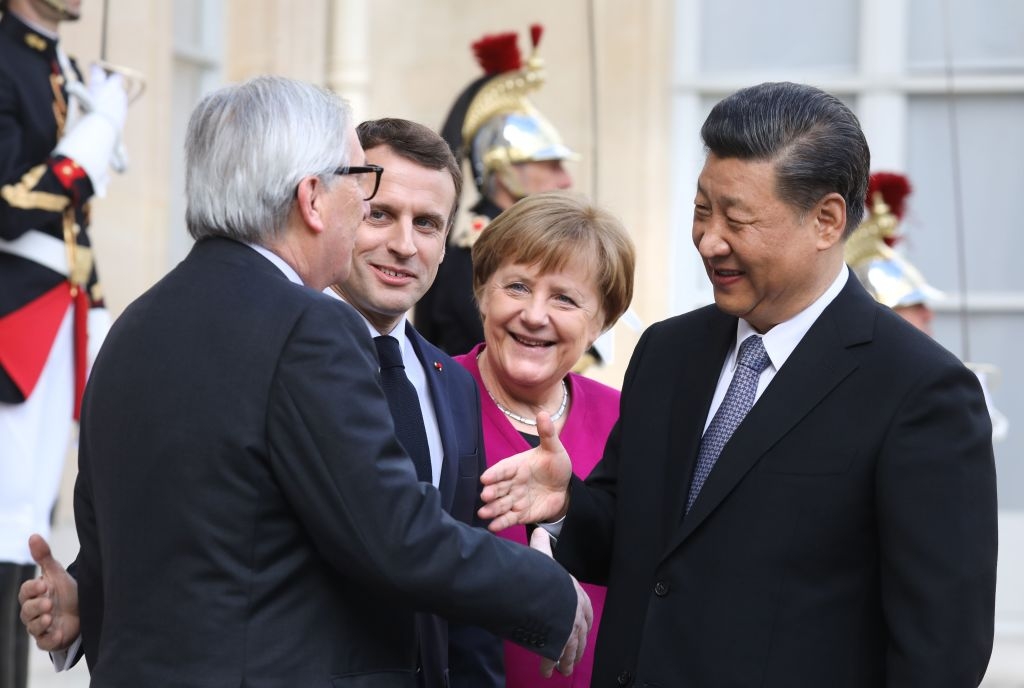In this mailing: - Soeren Kern: Austria: Top Court Overturns Headscarf Ban
- Judith Bergman: The EU Needs to Stand Up for the Human Rights It Proclaims
by Soeren Kern • December 21, 2020 at 5:00 am The case highlights the constitutional restraints that European governments face in regulating political Islam and promoting integration. "A regulation that only affects a certain group of female students and that remains selective in order to ensure religious and ideological neutrality as well as gender equality misses its regulatory goal and is irrelevant. §43a SchUG therefore violates the principle of equality in connection with the right to freedom of thought, conscience and religion." — Austria's Constitutional Court, December 11, 2020. "The prohibition of the wearing of Islamic headscarves in elementary schools was never intended to be a restriction of religious freedom, but rather as a protective mechanism against sexualization and Islamic oppression of underage children.... Unfortunately, this judgment is a step backwards in terms of civilization." — Leader of the Freedom Party in Upper Austria, Manfred Haimbuchner.
 The Austrian Constitutional Court has ruled that Austria's ban on the wearing of headscarves in public schools violates the freedom of religion and the freedom of expression and therefore is unconstitutional. Pictured: The Austrian Constitutional Court building in Vienna. (Image source: Bwag/CC-BY-SA-4.0/Wikimedia Commons) The Austrian Constitutional Court has ruled that Austria's ban on the wearing of headscarves in public schools violates the freedom of religion and the freedom of expression and therefore is unconstitutional. The case highlights the constitutional restraints that European governments face in regulating political Islam and promoting integration. The headscarf ban, introduced in June 2019 by a governing coalition comprised of the center-right People's Party (ÖVP) and the populist Freedom Party (FPÖ), was an extension of a groundbreaking October 2017 "Integration Law" that sought to improve the integration of Muslims into Austrian society. The 2017 law banned face coverings — including burkas, niqabs or masks — in public spaces. The 2019 law extended that ban to preclude children under the age of ten from wearing headscarves in primary schools. Continue Reading Article by Judith Bergman • December 21, 2020 at 4:00 am One year later, the EU now has a Magnitsky-system. No sanctions, however, have been suggested, whether by member states or by [High Representative of the EU for Foreign Affairs and Security Policy] Borrell himself. "Sanctions are triggered when a Member State puts forward a proposal," Borrell answered, without acknowledging that he himself has the authority to put forward such a proposal. "For the time being, no one has done it.... Let us see in the future; for the time being my concrete answer is clear". Crucially, the EU does not want to jeopardize the finalization of the EU-China Comprehensive Investment Agreement, which the EU and China have sought to realize for seven years now. The US has sanctioned at least 28 Chinese officials over their actions in Xinjiang.
 When asked whether Germany and the EU should enter into an investment agreement with China, while Uighurs there are being subjected to forced labor, German Chancellor Angela Merkel effectively dodged the question, saying she would "rather not answer hypothetical questions". Pictured: Chinese President Xi Jinping (right) chats with Merkel, French President Emmanuel Macron (second from right) and then European Commission President Jean-Claude Juncker at the Élysée in Paris on March 26, 2019. (Photo by Ludovic Marin/AFP via Getty Images) More proof that China is committing grave human rights abuses against Uighurs in Xinjiang has emerged. New evidence suggests that Uighurs, in addition to being detained in reeducation camps and coerced into working in textile manufacturing factories, are also forced to pick cotton. Twenty percent of the world's cotton is sourced in Xinjiang, in addition to 85% of China's cotton being produced there. China is the world's largest producer and exporter of yarn, and the largest producer and exporter of textiles and apparel. In addition, China has been discovered to use technology that arbitrarily selects Uighurs for detention through a data program that collects data about them and flags to officials those it deems potentially threatening for possible detention. Continue Reading Article |
|
No comments:
Post a Comment